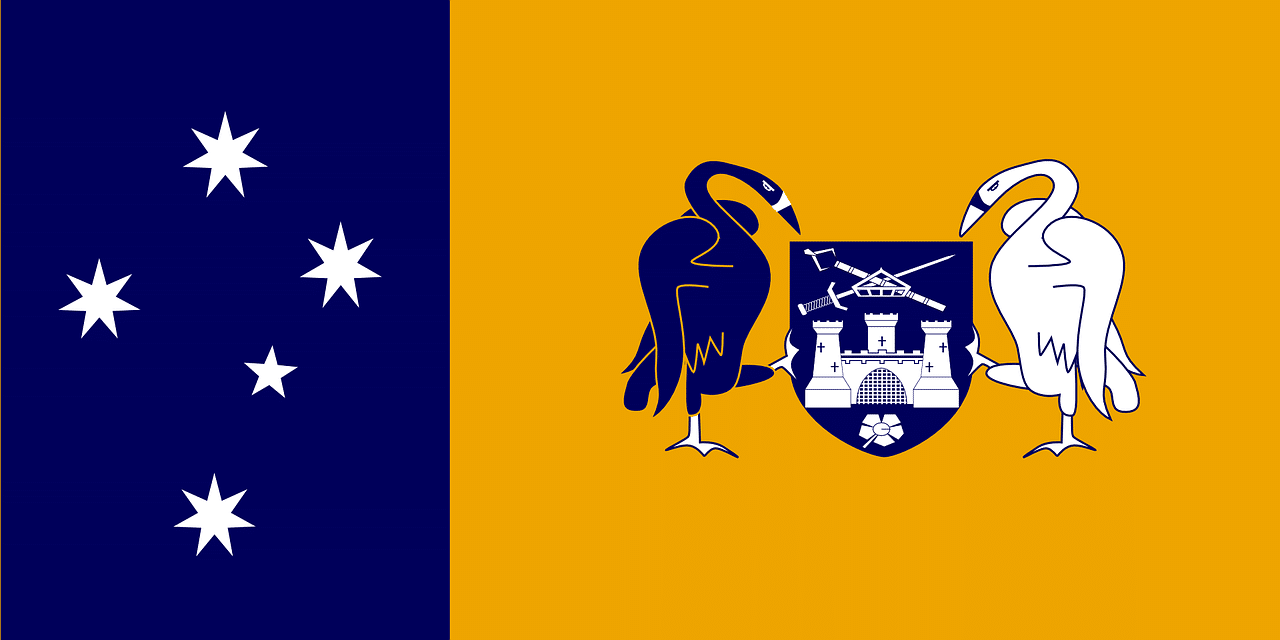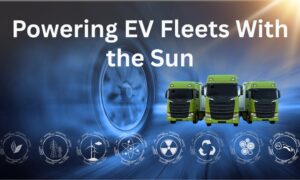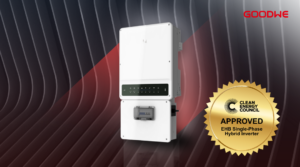Did you know that Australian Capital Territory (ACT) has one of the best emission reduction targets in the whole world? Its target is for each 100 per cent net zero emissions by 2045. Be part of the change and adopt a sustainable future, get your FREE solar quotes here at Energy Matters.
The ACT government supports this by providing generous solar and battery rebates and financial incentives, encouraging households and businesses to switch to solar. For one, the Sustainable Household Scheme is available now that will run until 2026 unless extended.
Switching to a better plan? You may already have an energy plan but want more power or to shop for a better deal.
Energy Matters’ “Free Energy Bill Comparator” is a cutting-edge energy comparator tool that allows you to compare your area’s most competitive retail offers. We collect the data from our wide range of trusted retailers, allowing you to decide about changing your plan.
If your goal is to get more electricity and minimise the cost of your gas and electricity bills, switch to a better plan now!
What You Need to Know About the Sustainable Household Scheme
In partnership with Brighte, the program provides zero-interest loans to help with the costs of energy-efficient upgrades.
The program works by providing a loan between $2,000 and $15,000 to purchase energy-efficiency products, which may be the ones below:
- Rooftop solar panels
- Household battery storage systems
- Electric heating and cooling systems
- Hot Water Heat Pumps (HWHP)
- Electric stove tops
- Electric vehicles
- Electric vehicle charging infrastructure
- Installation costs for these products
Over the life of the program scheme, those eligible can install one product or a bundle of products from the list. All of these are valued at $15,000.
Eligibility
Are you eligible for the Sustainable Household Scheme? The scheme is open to all ACT residents with a home or a driving license.
There are different categories that you should know about:
- Category A (Solar and batteries)
– Household rooftop solar PV systems (restricted eligibility)
– Household battery storage systems
– EV charging infrastructure
- Category B ( Energy efficient upgrades)
– Electric reverse cycle heating and cooling systems
– Hot Water Heat Pumps (HWHP)
– Efficient electric stove tops
- Category C (Electric vehicles)
– New and used
- Category D (Ceiling insulation)
– Ceiling insulation
| A person who owns the property in which the installation is to occur; or living with the person who owns the property in which the installation is to occur. | ||||
| A holder of a valid ACT Driver’s Licence; and a homeowner or tenant. | ||||
| A household may borrow a maximum of $15,000 over the life of the Scheme. This is a cumulative maximum across eligible product categories. | ||||
| This can be on a range of eligible products being bundled and does not need to be in a single transaction (e.g., $9,000 for reverse cycle air conditioning and later $6,000 for a Hot Water Heat Pump is allowed). | ||||
| Installation fees and charges may be included as part of the loan. | ||||
| The minimum loan application value is $2,000. | ||||
| Is either a standalone residence or a unit titled property. Each individual unit titled property within a unit plan is defined as a distinct eligible property. | ||||
| Is a property geographically located within the ACT (including Hall, Tharwa, and Oaks Estate but not Jervis Bay Territory). | ||||
| The $15,000 can also be spread across more than one property, as long as each property meets the unimproved value thresholds. | ||||
| Meets the Unimproved Value (UV) thresholds.* |
* The Unimproved property value (UV) was reset to 2022 levels on July 1, 2023. For all products except solar, the UV of the property must be $750,000 or less in any year beginning in 2022 for:
- freestanding houses and non-titled dual occupancies (non-unit titled dwellings) and;
- townhouses and unit-titled dual occupancies (stand-alone unit-titled dwellings) based on the unit entitlement percentage.
For stand-alone homes (non-unit titled properties): The UV for this type of property must be at or below $450,000 in any year from 2022.
Unit-titled properties: For all products the UV of the property must be at or below $300,000 in any year from 2022
A scheme participant in Category A, B, or D is defined as the owner of the property where the installation will take place or living with the owner of the property where the installation will take place. While a Category C scheme participant is defined as possessing a current ACT driver’s licence and whether you’re a homeowner or a renter.
The participant’s ability to repay the loan is a key criterion of the Scheme. To determine an applicant’s financial suitability, a credit check will be performed. Before applying, you must also register for and attend a free one hour live online workshop. You can choose to attend a workshop online or in person.
Details on upcoming workshops, as well as registration information, may be found at www.climatechoices.act.gov.au/events-news.
Keep in mind that loans are only limited to one per household across all the categories. In the future, this limit may change, which is why it’s essential to keep checking the Sustainable Household Scheme web page for changes or updates to the eligibility criteria.
To be eligible for EV loans, you must first:
- The Scheme participant must ordinarily reside in the ACT as evidenced by a rates notice or utility bill.
- The Scheme participant must hold a valid ACT Driver’s Licence.
- The electric vehicle (car) must be powered by a mechanism that produces zero emissions, such as a Battery Electric Vehicle.
- The total cost of the vehicle must be less than the luxury car tax threshold for fuel-efficient vehicles. For the up-to-date price threshold use the Australian Government’s luxury car tax (please note – use the same definitions of total cost as the website).
Attention, automobile enthusiasts! Are you prepared to embark on an electrifying journey with your next car? Brace yourself for a groundbreaking opportunity that will revolutionise the way you experience driving. Don’t miss out on this exclusive chance to book a test drive in one of the latest and most cutting-edge electric vehicles (EVs) available right in your very own neighbourhood!
So, what are you waiting for? Seize this moment to revolutionise your driving experience. Be a trendsetter, an innovator, and a protector of our planet. Book your test drive today and prepare to join the growing community of electric vehicle enthusiasts. The road to a sustainable and electrifying future awaits – don’t miss your chance to be part of it!
The cost
There are no setup or account-keeping fees. There is no penalty for repaying the loan early. However, if you fall behind on your loan payments, the loan provider which is Brighte Capital Pty Ltd may charge you a fee. For the loan, you must meet standardised credit conditions. This includes having good credit history and being able to repay the loan without difficulty. If you are unable to repay the loan, the loan company will give you hardship assistance.
The other options
Home Energy Support Program (HESP)
- The Health Care Card is now included as an eligible concession card.
- Pensioner Concession Card, Department of Veterans Affairs Gold Card, and now Health Care Card members can get a 50% rebate up to $2,500 for installing rooftop solar.
- As well as another 50% discount of up to $2,500 for installing energy efficient items.
– reverse cycle heating and cooling
– hot water heat pumps
– electric stove tops and ovens
– ceiling insulation
- This can be paired with a $10,000 loan.
- Starting in 2022, the UV eligibility thresholds for HESP will be $750,000 or below for non-unit properties and $300,000 or below for units.
Pensioner Concession Card, Department of Veterans Affairs Gold Card, and Health Care Card holders may be eligible for rebates on rooftop solar installation and other energy efficient equipment as part of the Home Energy Support program to help reduce loan size. Eligible homes that are accepted for one or more Home Energy Support rebates may also be eligible for a zero-interest loan of up to $10,000.
This implies that the ACT Government will provide a total of $15,000 in help to each qualified household, either through $15,000 in zero interest loans only or through $10,000 in zero interest loans and $5,000 in rebates.
Starting July 1, 2023, you can qualify for a solar rebate under the scheme if you meet either of the following criteria:
- Your UV (Unimproved Value) for a non-unit property should be $450,000 or less in 2022 to access the SHS. OR
- You should hold a Pensioner Concession Card, Department of Veterans Affairs Gold Card, or a Health Care Card, and your UV for a non-unit property should be $750,000 or less to access the Home Energy Support Program.
Solar on the way for multi-unit apartments
Solar benefits will soon be extended to more Canberra households, offering them savings and benefits. Solar enhancements will be installed in around 2,100 units, the majority of which are flats, offering substantial cost-of-living support. These renovations will be available to about 92% of apartments.
Furthermore, apartment owners can still apply for a loan of up to $15,000 through the Sustainable Household Scheme. This loan can be used to fund a variety of improvements, such as induction cooktops, heating and cooling systems, and electric automobiles.
Updated: 03 July 2023
Energy Matters has been a leader in the renewable energy industry since 2005 and has helped over 40,000 Australian households in their journey to energy independence.
Let us discuss and choose the best quote that suits your needs and budget, and we can connect you with our trusted local installers, who will provide up to 3 FREE quotes for your home and business solar energy system.













































